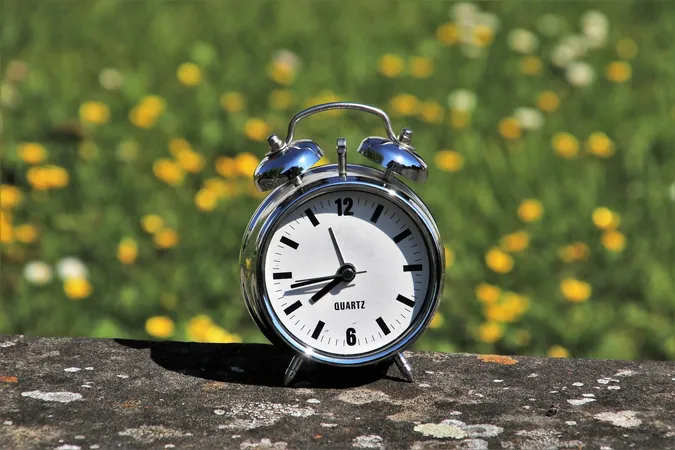
No Evidence of Heart Attack Surge Linked to Daylight Savings Time, New Study Reveals
2025-09-15
Author: Jia
A Relief for Heart Health?
A groundbreaking study led by the Duke Clinical Research Institute has shattered long-held beliefs that changing our clocks for daylight savings time leads to an increase in heart attacks. According to their findings, announced in the journal JAMA Network Open, there is no significant link between time changes and the incidence of acute myocardial infarctions (AMIs), commonly known as heart attacks.
The Daylight Dilemma
In the United States, daylight savings time begins on the second Sunday in March and ends on the first Sunday in November, resulting in a shift of one hour. Past research from Sweden and various U.S. populations indicated that there might be fleeting spikes in heart attack cases following these clock adjustments, specifically noting a striking 24% increase on the Monday following the spring shift.
What the Study Measured
The researchers aimed to investigate whether patients were more likely to experience AMIs during the week of daylight savings changes compared to adjacent weeks. To do this, they analyzed a massive dataset of 168,870 patient records from 1,124 hospitals between 2013 and 2022, pulling data from the National Cardiovascular Data Registry.
No Significant Changes Detected
The results were surprising: during the week of the spring clock change, there were 28,678 heart attacks compared to 28,596 the prior week and 28,169 the following week. Similarly, in the fall, there were 27,942 cases compared to 27,365 the week before and 28,120 the week after. In both cases, the differences in heart attack numbers were statistically insignificant.
In-Hospital Outcomes Remain Stable
Further adjustments for in-hospital mortality also revealed no alarming changes associated with the time shifts. Stroke outcomes exhibited a consistent pattern with no notable increases during daylight savings weeks. In fact, many year-by-year ratios hovered around the baseline of 1.00.
Conclusion: Time Doesn't T weaken Hearts
The authors of the study concluded that altering our clocks for daylight savings does not correlate with a higher incidence of heart attacks or fatalities in hospitals when compared with adjacent weeks. This news may come as a relief to many who were concerned about the potential health risks associated with time changes.
Making Sense of the Findings
With sizable populations experiencing seasonal clock changes, this study's implications are vast. As experts continue to weigh the benefits and downsides of daylight savings time, this research offers a fresh perspective: it seems that adjusting our schedules might not be as harmful to heart health as we once feared.


 Brasil (PT)
Brasil (PT)
 Canada (EN)
Canada (EN)
 Chile (ES)
Chile (ES)
 Česko (CS)
Česko (CS)
 대한민국 (KO)
대한민국 (KO)
 España (ES)
España (ES)
 France (FR)
France (FR)
 Hong Kong (EN)
Hong Kong (EN)
 Italia (IT)
Italia (IT)
 日本 (JA)
日本 (JA)
 Magyarország (HU)
Magyarország (HU)
 Norge (NO)
Norge (NO)
 Polska (PL)
Polska (PL)
 Schweiz (DE)
Schweiz (DE)
 Singapore (EN)
Singapore (EN)
 Sverige (SV)
Sverige (SV)
 Suomi (FI)
Suomi (FI)
 Türkiye (TR)
Türkiye (TR)
 الإمارات العربية المتحدة (AR)
الإمارات العربية المتحدة (AR)